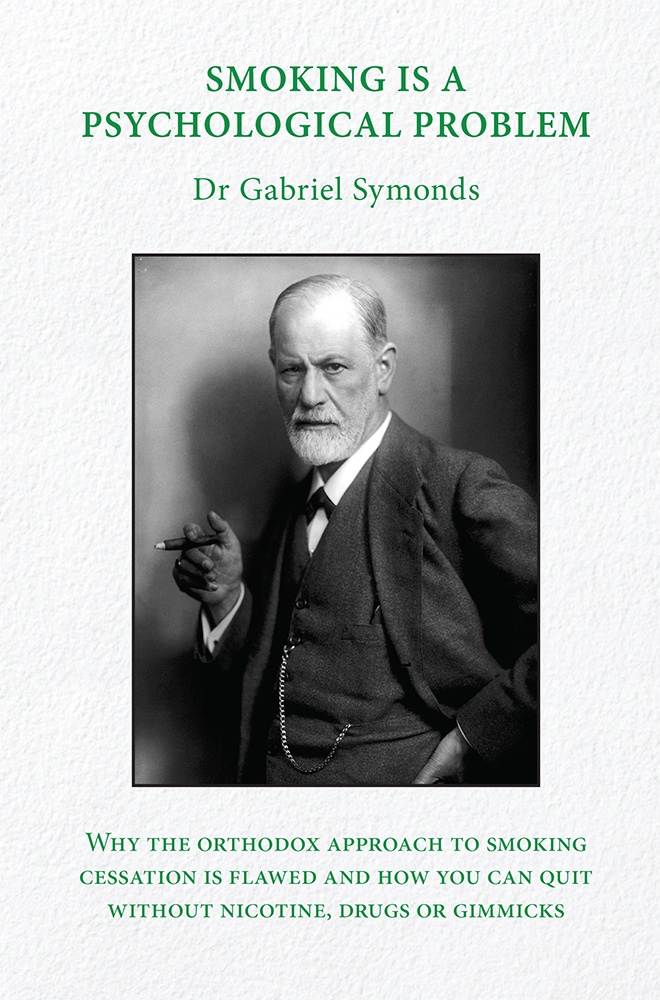How many centuries spent
The sedentary soul
In toils of measurement…?
(W B Yeats)
This curious concept is examined in a medical paper, the combined efforts of seven authors from Canada and the US, published in May 2016. Their answer: at least thirty.
The research leading to this conclusion consisted in carrying out random number telephone surveys in Ontario, Canada, in which smokers who agreed to participate for a fee of $15 were invited to answer leading questions of the following kind:
Thinking about your own smoking, would you say that you are not at all addicted to cigarettes, somewhat addicted to cigarettes, or very addicted to cigarettes?
This absurd question seems to have been derived from what is known as the Fagerström test for nicotine dependence. It produces a score that is meant to assess a smoker’s degree of addiction according to arbitrary criteria such as the time from waking to the first cigarette and whether one smokes more than ten per day. This is worse than useless, because by this test a lightly addicted smoker may think she has no need to stop and smoker who is heavily addicted may think it is too difficult to try.
Allow me a slight digression here. Paradoxical as it may seem, light smokers, say a young person smoking around five a day, may think she can stop whenever she wants and anyway since she only smokes a few this is not a problem. I have found these smokers can be difficult to help. They have usually been pushed by their parents to come and see me and do not want to stop. On the other hand, a really heavy smoker, such as a middle-aged man getting through two or even three packs a day, readily understands my method. These smokers have been unfairly stigmatised by medical researchers as ‘hardcore’ smokers. One such man, when asked why he smoked, said: ‘I don’t enjoy it. It’s because I’m addicted.’ With my help he readily understood how nicotine addiction kept him smoking and he stopped forthwith.
Back to our smokers whose quit attempts were being counted. Further questions put to them were those such as the following, in which they were invited to pick one of the suggested answers:
How easy or hard would it be for you to completely quit smoking if you wanted to?
Very easy / Somewhat easy / Somewhat hard / Very hard / Don’t know
How confident are you that you would succeed if you decided to quit completely in the next six months?
Not at all confident / Not very confident / Fairly confident / Very confident / Don’t know
How many times have you ever made a serious attempt to quit smoking? By serious, we mean that you made a conscious attempt to stay off cigarettes for good.
Apart from the fact that no indication is given for the difference, if any, between a serious attempt to quit and just an ordinary attempt, the definition of either kind in this study is stated to be as it is perceived by the smoker.
This is where it all breaks down. The concept of a quit attempt in regard to smoking is meaningless. If someone had the misfortune, say, to have suffered a stroke, it is clear what is meant when we talk of the patient attempting to walk. With smoking – an entirely voluntary activity – on the other hand, the definition of a quit attempt is crucial. To put it another way, what is meant when a smoker says she is trying to stop? Does it just mean the intention to stop, whenever that might be? Or does it mean not smoking for a certain length of time? If the latter, what length of time is the criterion for trying to stop? Is it a week, a month, a year, or what? Why not thirty minutes or twenty-seven hours? In reality, many smokers, if they think about it, intend to stop after each cigarette. They say to themselves, ‘I wish I hadn’t done that, and I don’t think I’ll have another one,’ until about forty minutes or an hour later when they do have another. And then another and another and another…
In this paper the definition of a quit attempt is merely the subject saying that, yes, he or she intends to quit, or has attempted to quit in the recent past. It is purely subjective and a weak basis for a scientific study.
It needs to be understood that when a smoker talks of quit attempts or of trying to stop smoking what they really mean is that they are failing to stop: that is why they smoke. Thus, when a smoker says, ‘I’m trying to give up,’ this is not a statement of a wish to quit, but the expression of an intention to continue.
The paper ends, predictably, as follows:
Further research to help customise risk messaging and supportive interventions is required for those who have made a number of previously failed attempts to quit and for new smokers just beginning their journey to quitting.
Excuse me. We don’t need further research or to customise risk messaging. And why do new smokers, or old smokers for that matter, need to undertake a journey to quitting? It is said that life is a journey, but smoking is a state: either you have quit or you have not.
Only one intervention is needed to solve the smoking problem: close down the cigarette factories.
Text © Gabriel Symonds


Leave A Comment